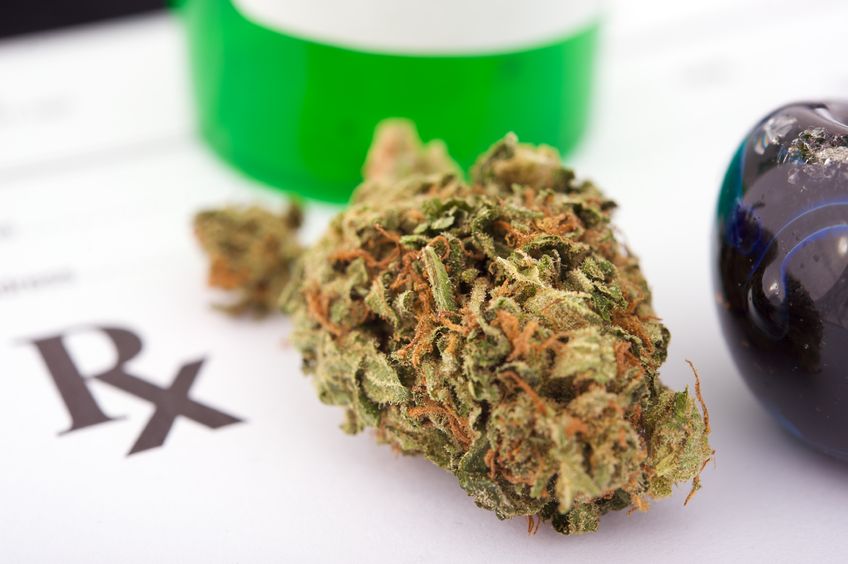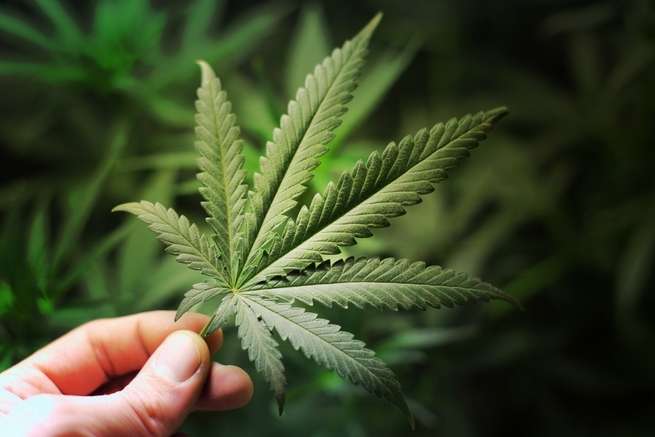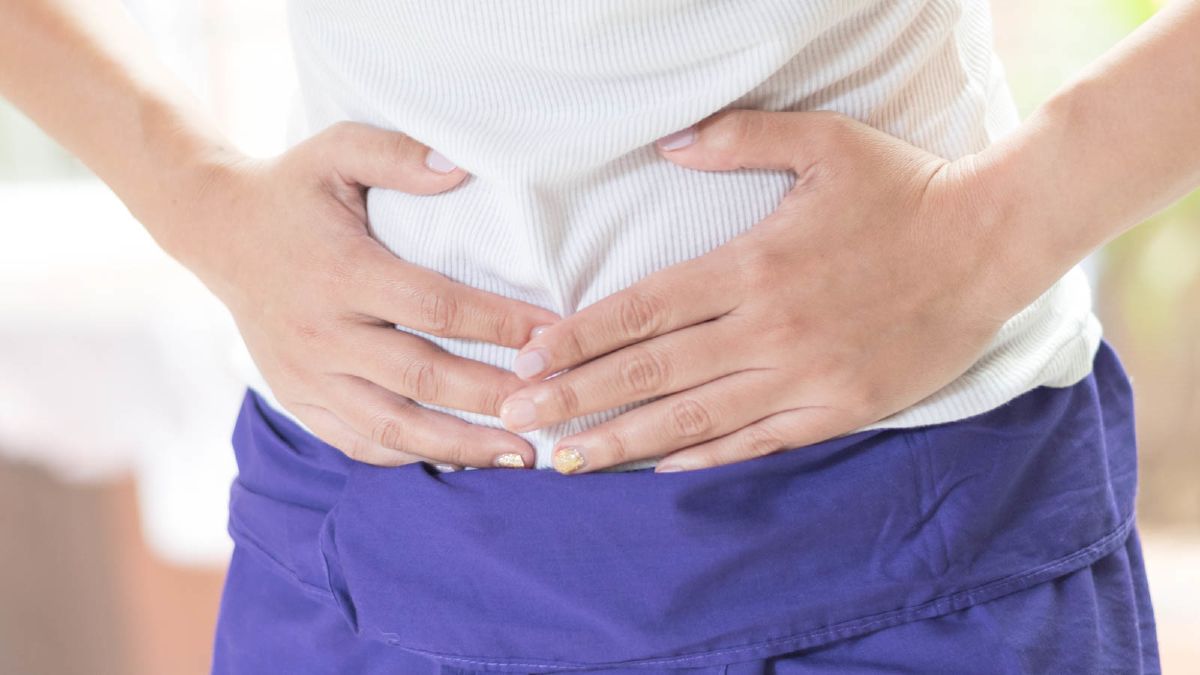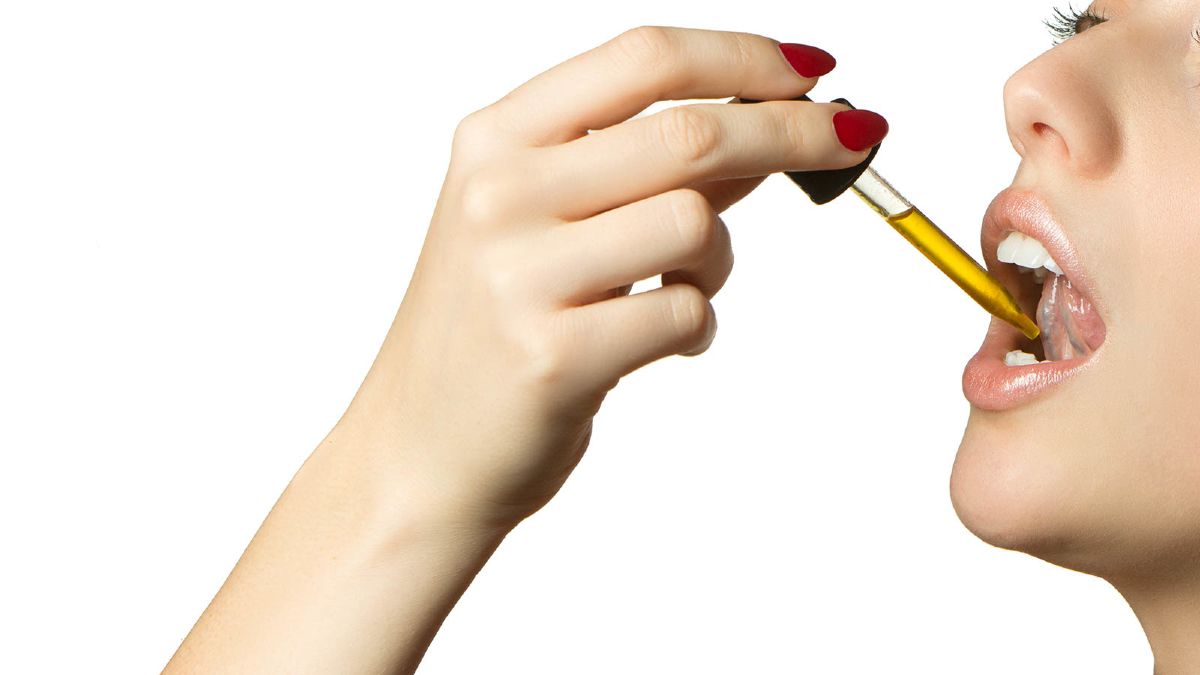Cannabis Superior To Drugs For Inflammatory Bowel Condition (Crohn's Disease)
Posted on:
Sunday, April 12th 2015
Written By:
Sayer Ji, Founder
GreenMedInfo LLC. This work is reproduced and distributed with the permission of GreenMedInfo LLC.

When drugs fail, and surgery is the only remaining option on the horizon, smoking cannabis may provide an effective and safe natural alternative for the debilitating inflammatory bowel disease known as Crohn's disease.
Crohn's disease is a debilitating inflammatory bowel disease that chronically affects the lining of the digestive tract and is usually resistant to conventional drug-based treatment. Even with treatment the condition generally progresses to the point where surgery is required in 70% of sufferers. Surgery, however, does not usually provide a cure, with 30% undergoing surgery seeing a recurrence of symptoms within three years, and 60% within 10 years.1
Given the poor prognosis of those diagnosed with Crohn's disease, some with the condition have been known to experiment with natural alternatives. At GreenMedInfo.com we have gathered preliminary research on natural interventions for the condition, with probiotics, boswelliaand curcumin (a turmeric polyphenol) top on the list. We have also spent a good deal of time reporting on research indicating that wheat is an inflammatory food to the digestive tract and therefore should likely be avoided by anyone with an inflammatory bowel condition.
One potential remedy for Crohn's disease that we have not yet reported on is cannabis. Animal research already indicates that it can ameliorate colitis, an inflammatory condition of the colon. There is also an established role of cannabis within gastroenterology for the following conditions: "anorexia, emesis, abdominal pain, gastroenteritis, diarrhea, intestinal inflammation, and diabetic gastroparesis."2 Additionally, a retrospective observational study from 2011 found that 21 of the 30 patients who imbibed inhaled cannabis saw significant improvement, with patients requiring steroid treatment reduced from 26 to 4. [view the full PDF here]
These preliminary results set the groundwork for a new study investigating cannabis in Crohn's patients published this month in the journal Clinical Gastroenterology and Hepatology and titled, "Cannabis Induces a Clinical Response in Patients With Crohn's Disease: A Prospective Placebo-Controlled Study." [view the full PDF here]
In the new study -- the first randomized, placebo-controlled, double-blinded study of its kind on the topic -- researchers studied 21 patients (mean age 40) with Crohn's disease who did not respond to drug therapy (steroids, immunomodulators, or anti–tumor necrosis factor-α agents). Patients were randomly assigned to be given cannabis, twice daily, in the form of cigarettes containing 115 mg of (THC) or placebo containing cannabis flowers from which the THC had been extracted.
The study participants were assessed during 8 weeks of treatment and 2 weeks thereafter and saw the following remarkable results:
Complete remission (CDAI score, <150) was achieved by 5 of 11 subjects in the cannabis group (45%) and 1 of 10 in the placebo group (10%; P = .43). A clinical response (decrease in CDAI score of >100) was observed in 10 of 11 subjects in the cannabis group (90%; from 330 ± 105 to 152 ± 109) and 4 of 10 in the placebo group (40%; from 373 ± 94 to 306 ± 143; P = .028). Three patients in the cannabis group were weaned from steroid dependency. Subjects receiving cannabis reported improved appetite and sleep, with no significant side effects. [emphasis added]
The authors concluded cannabis was a clinically effective intervention in 10 of 11 patients:
"Although the primary end point of the study (induction of remission) was not achieved, a short course (8 weeks) of THC-rich cannabis produced significant clinical, steroid-free benefits to 10 of 11 patients with active Crohn's disease, compared with placebo, without side effects. Further studies, with larger patient groups and a nonsmoking mode of intake, are warranted." [emphasis added]
How Does Cannabis Work?
The primary mechanisms through which cannabis exhibits healing properties in Crohn's disease are its immunomodulatory and anti-inflammatory properties:
"Cannabinoids have a profound anti-inflammatory effect, mainly through the CB2 receptor 2]. Cell-mediated immunity was found to be impaired in] chronic marijuana users [6]. A potent anti-inflammatory effect of cannabis was observed in rodents [7]. Studying the functional roles of the endocannabinoid system in immune modulation reveals that it is involved in almost all major immune events. Cannabinoids shift the balance of proinflammatory cytokines and anti-inflammatory cytokines (towards the T helper cell type 2 profiles (Th2 phenotype and suppress cell-mediated immunity, whereas humoral immunity may be enhanced [8]. Therefore, cannabinoids may be used to treat various inflammatory conditions ,including rheumatoid arthritis." [Source]
For more information on the myriad therapeutic properties of cannabis visit our cannabis research database.
Join the upcoming free webinar on healing leaky gut and immune disorders with Greenmedinfo.com founder Sayer Ji. Register here free.
References
1 http://www.ccfa.org/what-are-crohns-and-colitis/what-is-crohns-disease/crohns-treatment-options.html
2 Naftali, T., Bar Lev, L., Yablekovitch, D. et al. Treatment of Crohn's disease with cannabis: an observational study. Isr Med Assoc J. 2011; 13: 455–458

Sayer Ji is founder of Greenmedinfo.com, a reviewer at the International Journal of Human Nutrition and Functional Medicine, Co-founder and CEO of Systome Biomed, Vice Chairman of the Board of the National Health Federation, Steering Committee Member of the Global Non-GMO Foundation.
Disclaimer: This article is not intended to provide medical advice, diagnosis or treatment. Views expressed here do not necessarily reflect those of GreenMedInfo or its staff.
Internal Site Commenting is limited to members.
Disqus commenting is available to everyone.
Posted on:
Sunday, April 12th 2015
Written By:
Sayer Ji, Founder
GreenMedInfo LLC. This work is reproduced and distributed with the permission of GreenMedInfo LLC.

When drugs fail, and surgery is the only remaining option on the horizon, smoking cannabis may provide an effective and safe natural alternative for the debilitating inflammatory bowel disease known as Crohn's disease.
Crohn's disease is a debilitating inflammatory bowel disease that chronically affects the lining of the digestive tract and is usually resistant to conventional drug-based treatment. Even with treatment the condition generally progresses to the point where surgery is required in 70% of sufferers. Surgery, however, does not usually provide a cure, with 30% undergoing surgery seeing a recurrence of symptoms within three years, and 60% within 10 years.1
Given the poor prognosis of those diagnosed with Crohn's disease, some with the condition have been known to experiment with natural alternatives. At GreenMedInfo.com we have gathered preliminary research on natural interventions for the condition, with probiotics, boswelliaand curcumin (a turmeric polyphenol) top on the list. We have also spent a good deal of time reporting on research indicating that wheat is an inflammatory food to the digestive tract and therefore should likely be avoided by anyone with an inflammatory bowel condition.
One potential remedy for Crohn's disease that we have not yet reported on is cannabis. Animal research already indicates that it can ameliorate colitis, an inflammatory condition of the colon. There is also an established role of cannabis within gastroenterology for the following conditions: "anorexia, emesis, abdominal pain, gastroenteritis, diarrhea, intestinal inflammation, and diabetic gastroparesis."2 Additionally, a retrospective observational study from 2011 found that 21 of the 30 patients who imbibed inhaled cannabis saw significant improvement, with patients requiring steroid treatment reduced from 26 to 4. [view the full PDF here]
These preliminary results set the groundwork for a new study investigating cannabis in Crohn's patients published this month in the journal Clinical Gastroenterology and Hepatology and titled, "Cannabis Induces a Clinical Response in Patients With Crohn's Disease: A Prospective Placebo-Controlled Study." [view the full PDF here]
In the new study -- the first randomized, placebo-controlled, double-blinded study of its kind on the topic -- researchers studied 21 patients (mean age 40) with Crohn's disease who did not respond to drug therapy (steroids, immunomodulators, or anti–tumor necrosis factor-α agents). Patients were randomly assigned to be given cannabis, twice daily, in the form of cigarettes containing 115 mg of (THC) or placebo containing cannabis flowers from which the THC had been extracted.
The study participants were assessed during 8 weeks of treatment and 2 weeks thereafter and saw the following remarkable results:
Complete remission (CDAI score, <150) was achieved by 5 of 11 subjects in the cannabis group (45%) and 1 of 10 in the placebo group (10%; P = .43). A clinical response (decrease in CDAI score of >100) was observed in 10 of 11 subjects in the cannabis group (90%; from 330 ± 105 to 152 ± 109) and 4 of 10 in the placebo group (40%; from 373 ± 94 to 306 ± 143; P = .028). Three patients in the cannabis group were weaned from steroid dependency. Subjects receiving cannabis reported improved appetite and sleep, with no significant side effects. [emphasis added]
The authors concluded cannabis was a clinically effective intervention in 10 of 11 patients:
"Although the primary end point of the study (induction of remission) was not achieved, a short course (8 weeks) of THC-rich cannabis produced significant clinical, steroid-free benefits to 10 of 11 patients with active Crohn's disease, compared with placebo, without side effects. Further studies, with larger patient groups and a nonsmoking mode of intake, are warranted." [emphasis added]
How Does Cannabis Work?
The primary mechanisms through which cannabis exhibits healing properties in Crohn's disease are its immunomodulatory and anti-inflammatory properties:
"Cannabinoids have a profound anti-inflammatory effect, mainly through the CB2 receptor 2]. Cell-mediated immunity was found to be impaired in] chronic marijuana users [6]. A potent anti-inflammatory effect of cannabis was observed in rodents [7]. Studying the functional roles of the endocannabinoid system in immune modulation reveals that it is involved in almost all major immune events. Cannabinoids shift the balance of proinflammatory cytokines and anti-inflammatory cytokines (towards the T helper cell type 2 profiles (Th2 phenotype and suppress cell-mediated immunity, whereas humoral immunity may be enhanced [8]. Therefore, cannabinoids may be used to treat various inflammatory conditions ,including rheumatoid arthritis." [Source]
For more information on the myriad therapeutic properties of cannabis visit our cannabis research database.
Join the upcoming free webinar on healing leaky gut and immune disorders with Greenmedinfo.com founder Sayer Ji. Register here free.
References
1 http://www.ccfa.org/what-are-crohns-and-colitis/what-is-crohns-disease/crohns-treatment-options.html
2 Naftali, T., Bar Lev, L., Yablekovitch, D. et al. Treatment of Crohn's disease with cannabis: an observational study. Isr Med Assoc J. 2011; 13: 455–458

Sayer Ji is founder of Greenmedinfo.com, a reviewer at the International Journal of Human Nutrition and Functional Medicine, Co-founder and CEO of Systome Biomed, Vice Chairman of the Board of the National Health Federation, Steering Committee Member of the Global Non-GMO Foundation.
Disclaimer: This article is not intended to provide medical advice, diagnosis or treatment. Views expressed here do not necessarily reflect those of GreenMedInfo or its staff.
Internal Site Commenting is limited to members.
Disqus commenting is available to everyone.




